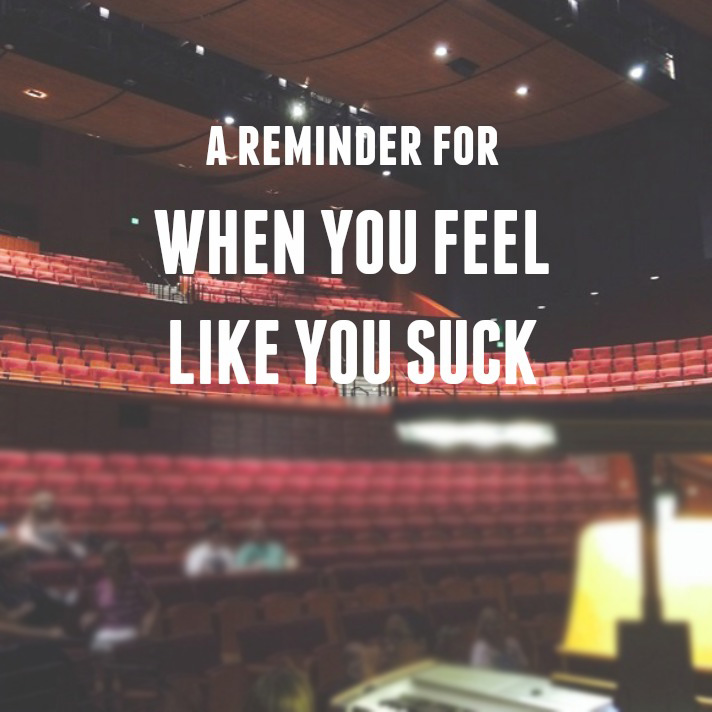When we first make the transition from playing music in school to playing music professionally, many young performers are quickly discouraged. We go from competing against and performing with players relatively close to us in age with very subtle differences in ability (with a few exceptions), to doing the same against and with players who have decades more years of experience than us. For many aspiring musicians, this creates a feeling of unease, inadequacy, or self-doubt that can become overwhelming.
During this stage, one might be tempted to quit.
Even before we enter the music job market we’re exposed to hugely successful and even legendary performers because they’re the ones that make it to the top. That’s what we strive for and our goal is often to be “just like them.” The ones whose names we hear on a regular basis.
The musicians we don’t see as often are the local performers who work, struggle, fail and try all again on a regular basis to make a living at what they do. We most likely don’t ever see or realize the day-to-day hardships of the average musician until we’re facing them ourselves.
Those who become highly successful in music are much rarer than we are often led to believe, and so, our tastes and goals often exceed our abilities or dare I say “luck”. This is called “The Gap” – the period of time where you have to wait for your skill/career to catch up with your desires.
This period of time can last longer for most than we might wish it to. But you have to give it time (read years) for your skills to catch up with your hopes and dreams. And while you’re waiting, it can be easy to grow frustrated and impatient, but it’s important to try to stick with it if music is truly what you want to do.
Put time in every single day. Work hard on your instrument, your composing, your versatility – whatever it is you’re aiming for. It might be hard to see the progress you’re making on a day-to-day basis but if you are putting in the work, it’s there. Trust me.
But it isn’t enough to focus on the music alone. You also have to work on the business aspects of music every day too. Work on connecting with other musicians in your area, on doing the best you can at the gigs you have, on finding new gigs, on creating a consistent artist brand.
Don’t wait for things to fall into place. That isn’t going to happen if you aren’t doing the work behind the scenes. It’s easy to forget that other more established musicians have already “paid their dues.” Through your dedication to your music career and your craft, through your consistent hard work you will inevitably continue to to improve and find new opportunities.
[template id=”182″]
